Beyond Citizen Kane is a British film of genre Documentary
Beyond Citizen Kane (1993)
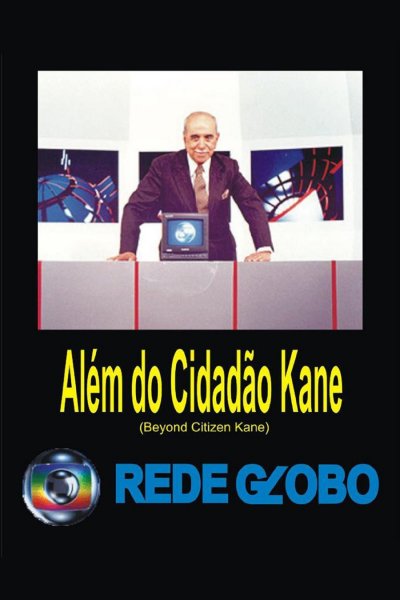
If you like this film, let us know!
Length 1h45
OriginUnited-kingdom
Genres Documentary
Themes Seafaring films, Transport films, Documentary films about business, Documentary films about law, Documentary films about politics, Political films, Films about Latin American military dictatorships
Rating82%










Beyond Citizen Kane (1993) is a British documentary film directed by Simon Hartog, produced by John Ellis, and first broadcast on Channel 4.
It details the dominant position of the Rede Globo media group, the largest in Brazil, and discusses the group's influence, power, and political connections. Globo's president and founder Roberto Marinho was criticised and compared to the fictional newspaper tycoon Charles Foster Kane, created by Orson Welles for the 1941 film Citizen Kane. According to the documentary, Marinho's media group engages in manipulation of news to influence public opinion.
Rede Globo objected to the film's position and tried to buy Brazilian rights, but Hartog had already made agreements to give non-TV rights to political and cultural groups in Brazil. Rede Globo went to court to prevent a scheduled March 1994 screening at the Rio de Janeiro Modern Art Museum, and gained a court order by which Military Police confiscated movie posters and the copy of the film. It has never been broadcast on TV in Brazil or released in commercial theatres, but was shown illegally during the 1990s in universities and among political groups. In 1995, a court rejected Rede Globo's bid to confiscate a university copy. The film was officially restricted to university screenings.
However, copies sold in Britain reached Brazil in the 1990s and circulated widely there. In addition, since the Internet boom of the early 21st century, the film has been released on sharing networks and had hundreds of thousands of views, as measured on YouTube and Google Video.
Synopsis
The documentary tracks Globo's involvement with and support of the military dictatorship; its illegal partnership of the 1960s with the American group Time Warner (at the time Time-Life); Marinho's political manoeuvrings (which included airing on Jornal Nacional, the network's prime time news program, highlights of a 1989 presidential debate edited in a way as to favour Fernando Collor de Mello); and a controversial deal involving shares of NEC Corporation and government contracts. It features interviews with 21 people, including noted Brazilian politicians and cultural figures, such as politicians Leonel Brizola and Antonio Carlos Magalhães, singer-songwriter Chico Buarque, former Justice Minister Armando Falcão, politician Luiz Inácio Lula da Silva, who later was elected as president; and former employees Walter Clark and Armando Nogueira.Comments
Leave comment :
Suggestions of similar film to Beyond Citizen Kane
There are 8971 with the same cinematographic genres, 14486 films with the same themes (including 0 films with the same 7 themes than Beyond Citizen Kane), to have finally 70 suggestions of similar films.If you liked Beyond Citizen Kane, you will probably like those similar films :
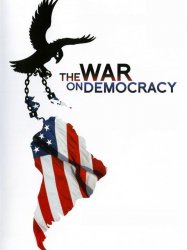
The War on Democracy (2007)
, 1h36Directed by John Pilger
Genres War, Documentary, Historical
Themes Seafaring films, Transport films, Documentary films about law, Documentary films about historical events, Documentary films about politics, Political films, Films about Latin American military dictatorships
Actors John Pilger, Ronald Reagan
Rating80%





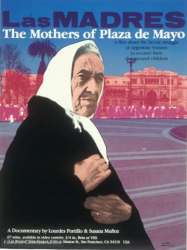
The Mothers of Plaza de Mayo (1985)
, 1h4Genres Documentary, Historical
Themes Seafaring films, Transport films, Documentary films about law, Documentary films about historical events, Documentary films about politics, Political films, Films about Latin American military dictatorships
Actors Carmen Zapata
Rating67%






Twenty Years Later (1985)
, 1h59Directed by Eduardo Coutinho
Origin Bresil
Genres Documentary, Historical
Themes Seafaring films, Transport films, Documentary films about law, Documentary films about politics, Political films, Films about Latin American military dictatorships
Actors Eduardo Coutinho
Rating82%






Jango (1984)
, 1h57Origin Bresil
Genres Documentary, Historical
Themes Seafaring films, Transport films, Documentary films about law, Documentary films about historical events, Documentaire sur une personnalité, Documentary films about politics, Political films, Films about Latin American military dictatorships
Actors José Wilker
Rating76%





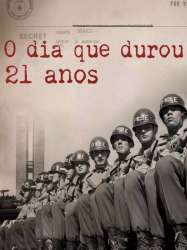
The Day That Lasted 21 Years (2012)
, 1h17Origin Bresil
Genres Documentary
Themes Seafaring films, Transport films, Documentary films about law, Documentary films about historical events, Documentary films about politics, Political films, Films about Latin American military dictatorships
Rating80%





The 1964 Brazilian coup d'état (Portuguese: Golpe de estado no Brasil em 1964 or, more colloquially, Golpe de 64) on March 31, 1964, culminated in the overthrow of Brazilian elected President João Goulart by the Armed Forces. On April 1, 1964, the United States expressed its support to the new military regime.
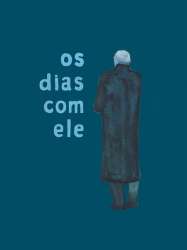
The Days with Him (2014)
, 1h47Origin Bresil
Genres Biography, Documentary
Themes Seafaring films, Transport films, Documentary films about law, Documentary films about politics, Political films, Films about Latin American military dictatorships
Rating67%






Looking for Iara (2013)
Origin Bresil
Genres Documentary
Themes Seafaring films, Transport films, Documentary films about law, Documentary films about war, Documentary films about historical events, Documentary films about politics, Political films, Films about Latin American military dictatorships
Rating79%






El Salvador: Another Vietnam (1981)
, 53minutesOrigin USA
Genres Documentary
Themes Seafaring films, Transport films, Documentary films about law, Documentary films about war, Documentary films about historical events, Documentary films about politics, Political films, Films about Latin American military dictatorships
Actors Mike Farrell
Rating64%





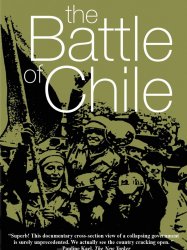
The Battle of Chile: Part I (1975)
Directed by Patricio Guzmán
Genres Documentary, Historical
Themes Seafaring films, Politique, Transport films, Documentary films about law, Documentary films about historical events, Documentaire sur une personnalité, Documentary films about politics, Political films, Films about Latin American military dictatorships
Rating80%





En 1973, alors que Salvador Allende initie un programme de transformations sociales et politiques visant à enrayer la pauvreté, la droite organise une série de grèves. Quand Allende obtient la majorité des suffrages en mars, la bourgeoisie comprend qu’elle ne peut plus avoir recours à des mécanismes légaux, et c’est le coup d’État.
 Connection
Connection
